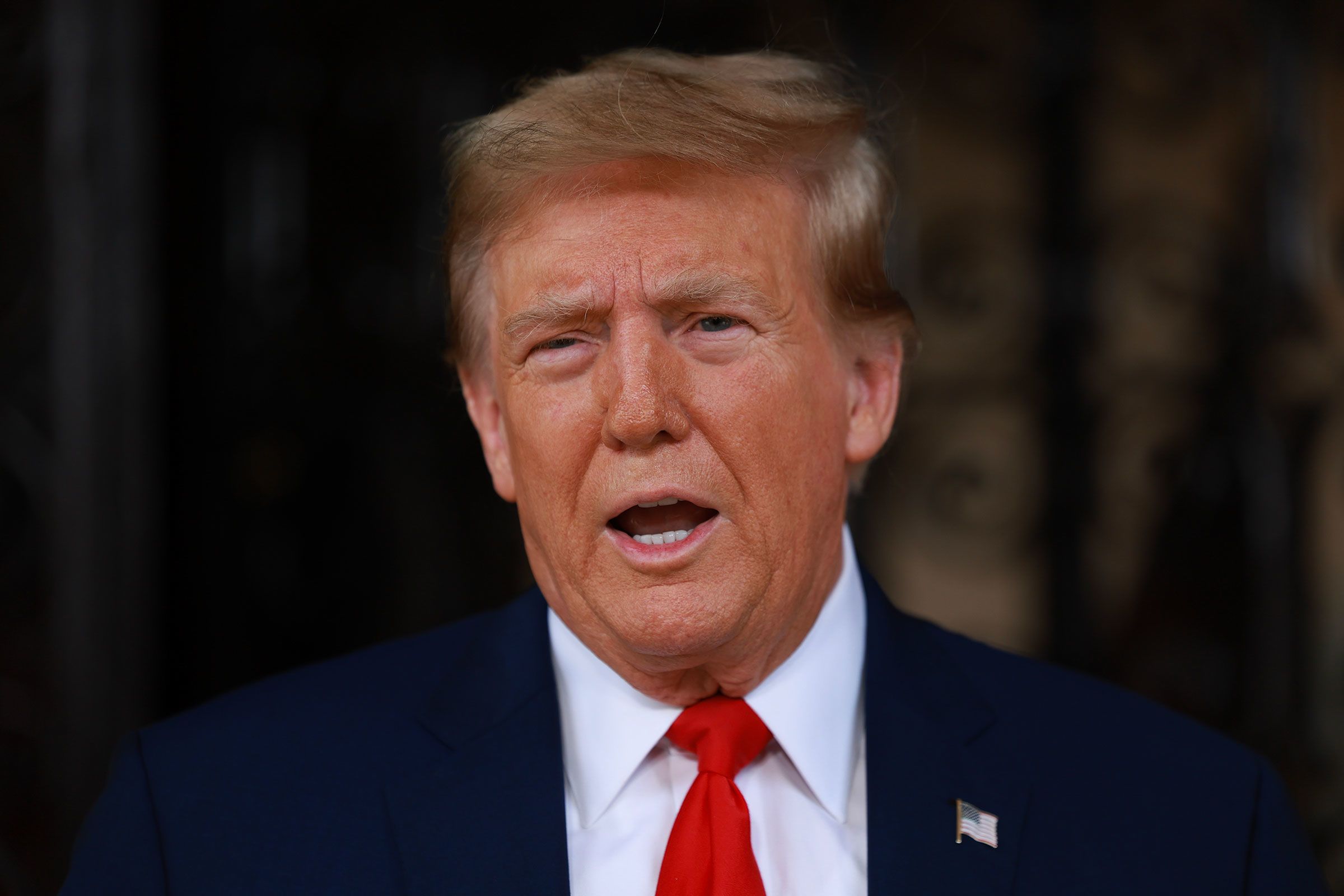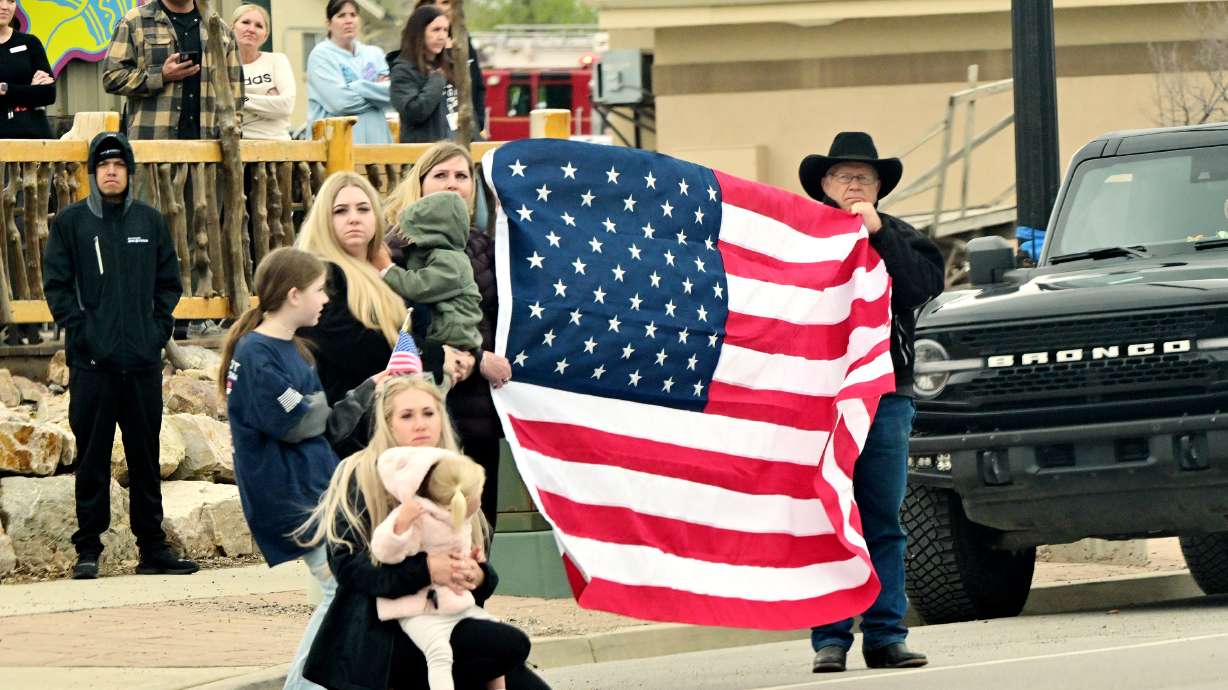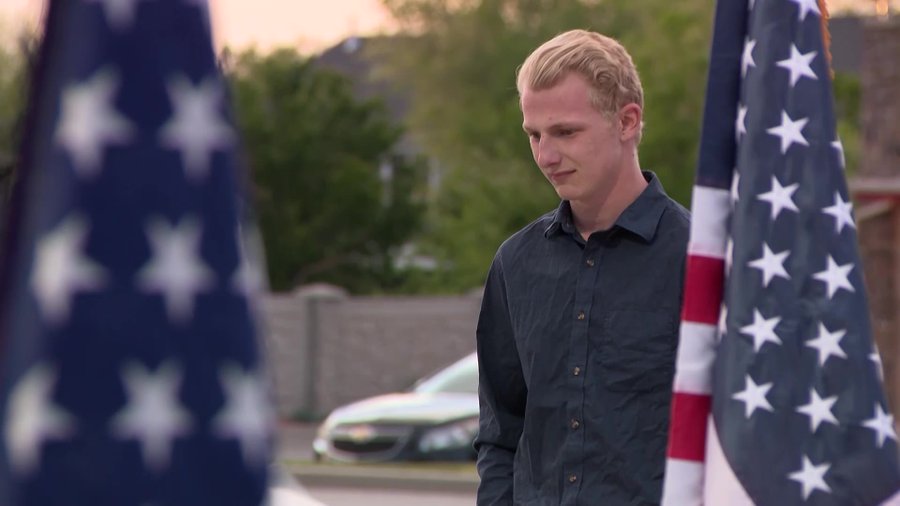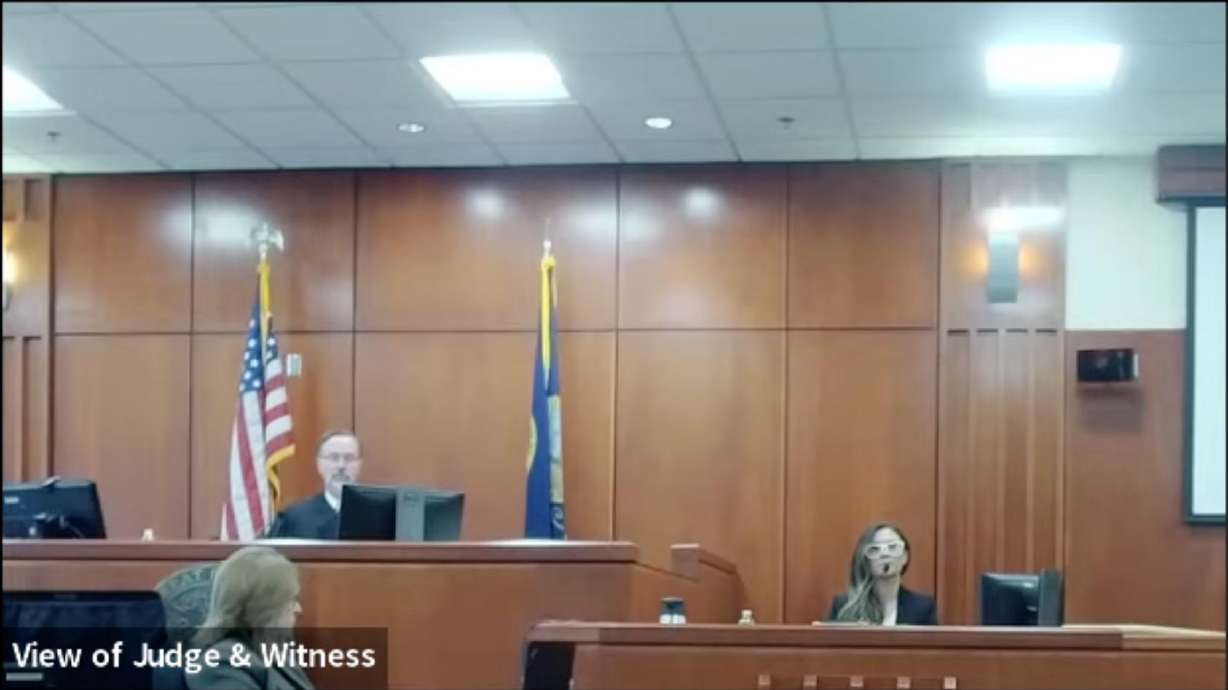Former President Trump has surrendered for a fourth time this year
Aug 24, 2023, 6:43 PM | Updated: Aug 25, 2023, 9:18 am
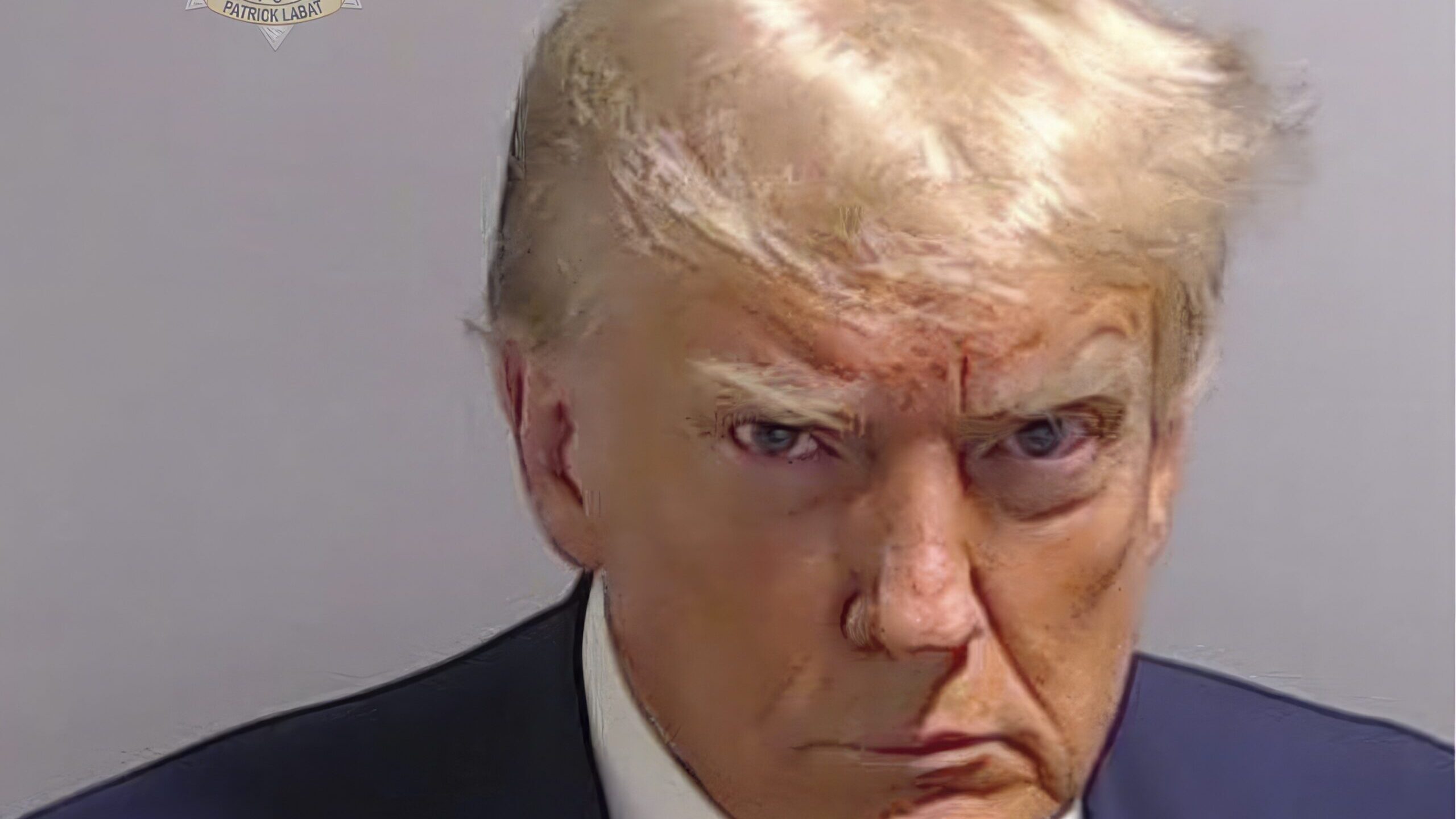
This booking photo provided by Fulton County Sheriff's Office, shows former President Donald Trump on Thursday, Aug. 24, 2023, after he surrendered and was booked at the Fulton County Jail in Atlanta. Trump is accused by District Attorney Fani Willis of scheming to subvert the will of Georgia voters in a desperate bid to keep Joe Biden out of the White House. (Fulton County Sheriff's Office via AP)
Credit: ASSOCIATED PRESS
(Fulton County Sheriff's Office via AP)
ATLANTA (AP) — Former President Donald Trump surrendered on Thursday for a fourth time this year, with this case focusing on his efforts to overturn his 2020 general election defeat in Georgia.
The probe by Fulton County District Attorney Fani Willis began shortly after the release of a recording of a Jan. 2, 2021, phone call between former President Trump and Georgia Secretary of State Brad Raffensperger in which the then-president suggested that Raffensperger could “find 11,780 votes” — just enough to overtake Joe Biden.
President Trump, a Republican, has described his phone call to Raffensperger as “perfect” and has portrayed the prosecution by the Democratic district attorney as politically motivated.
Here’s a look at some of the other top probes against Trump as he campaigns for the 2024 Republican nomination:
Classified Documents Case
Special counsel Jack Smith has been leading two federal probes related to former President Trump, both of which have resulted in charges against the former president.
The first charges to result from those investigations came in June when President Trump was indicted on charges he mishandled top secret documents at his Florida estate. The indictment alleged that former President Trump repeatedly enlisted aides and lawyers to help him hide records demanded by investigators and cavalierly showed off a Pentagon “plan of attack” and classified map.
A superseding indictment issued in July added charges accusing President Trump of asking for surveillance footage at his Mar-a-Lago estate to be deleted after FBI and Justice Department investigators visited in June 2022 to collect classified documents he took with him after leaving the White House. The new indictment also charged him with illegally holding onto a document he’s alleged to have shown off to visitors in New Jersey.
In all, former President Trump faces 40 felonies in the classified documents case. The most serious charge carries a penalty of up to 20 years in prison.
Walt Nauta, a valet for President Trump, and Carlos De Oliveira, the property manager at Trump’s Florida estate, have been charged in the case with scheming to conceal surveillance footage from federal investigators and lying about it.
President Trump and Nauta have pleaded not guilty. De Oliveira is scheduled to be arraigned Tuesday.
U.S. District Judge Aileen Cannon set a trial date of May 20, 2024. If that date holds, it will mean a possible trial will not start until deep into the presidential nominating calendar and probably well after the Republican nominee is clear — though before that person is officially nominated at the Republican National Convention.
Election Interference
Smith’s second case against President Trump was unveiled in August when the former president was indicted on felony charges for working to overturn the results of the 2020 election in the run-up to the violent riot by his supporters at the U.S. Capitol.
The four-count indictment includes charges of conspiracy to defraud the United States government and conspiracy to obstruct an official proceeding: the congressional certification of President Biden’s victory. It describes how former President Trump repeatedly told supporters and others that he had won the election, despite knowing that was false, and how he tried to persuade state officials, Vice President Mike Pence and finally Congress to overturn the legitimate results.
After a weekslong campaign of lies about the election results, prosecutors allege that President Trump sought to exploit the violence at the Capitol by pointing to it as a reason to further delay the counting of votes that sealed his defeat.
In their charging documents, prosecutors referenced a half-dozen unindicted co-conspirators, including lawyers inside and outside of government who they said had worked with President Trump to undo the election results and advanced legally dubious schemes to enlist slates of fake electors in battleground states won by President Biden.
The President Trump campaign called the charges “fake” and asked why it took 2 1/2 years to bring them.
Hush Money Scheme
President Trump became the first former U.S. president in history to face criminal charges when he was indicted in New York in March on state charges stemming from hush money payments made during the 2016 presidential campaign to bury allegations of extramarital sexual encounters.
He pleaded not guilty to 34 felony counts of falsifying business records. Each count is punishable by up to four years in prison, though it’s not clear if a judge would impose any prison time if President Trump were convicted.
The counts are linked to a series of checks that were written to his lawyer Michael Cohen to reimburse him for his role in paying off porn actor Stormy Daniels, who alleged a sexual encounter with President Trump in 2006, not long after Melania Trump gave birth to their son, Barron. Those payments were recorded in various internal company documents as being for a legal retainer that prosecutors say didn’t exist.
The former president is next set to appear in state court on Jan. 4, before Republicans begin their nominating process in earnest.
New York Civil Cases
New York Attorney General Letitia James has sued President Trump and the Trump Organization, alleging they misled banks and tax authorities about the value of assets including golf courses and skyscrapers to get loans and tax benefits.
That lawsuit could lead to civil penalties against the company if James, a Democrat, prevails. She is seeking a $250 million fine and a ban on President Trump doing business in New York. Manhattan prosecutors investigated the same alleged conduct but did not pursue criminal charges.
A civil trial is scheduled in state court for October.
In a separate civil case in federal court in New York, President Trump was found liable in May of sexually abusing and defaming former magazine columnist E. Jean Carroll in the mid-1990s. The jury rejected Carroll’s claim that President Trump had raped her in a dressing room.
President Trump was ordered to pay $5 million to Carroll. He has appealed and has adamantly denied her accusations. In July, a federal judge upheld the jury’s verdict against President Trump, rejecting the former president’s claims that the award was excessive.


